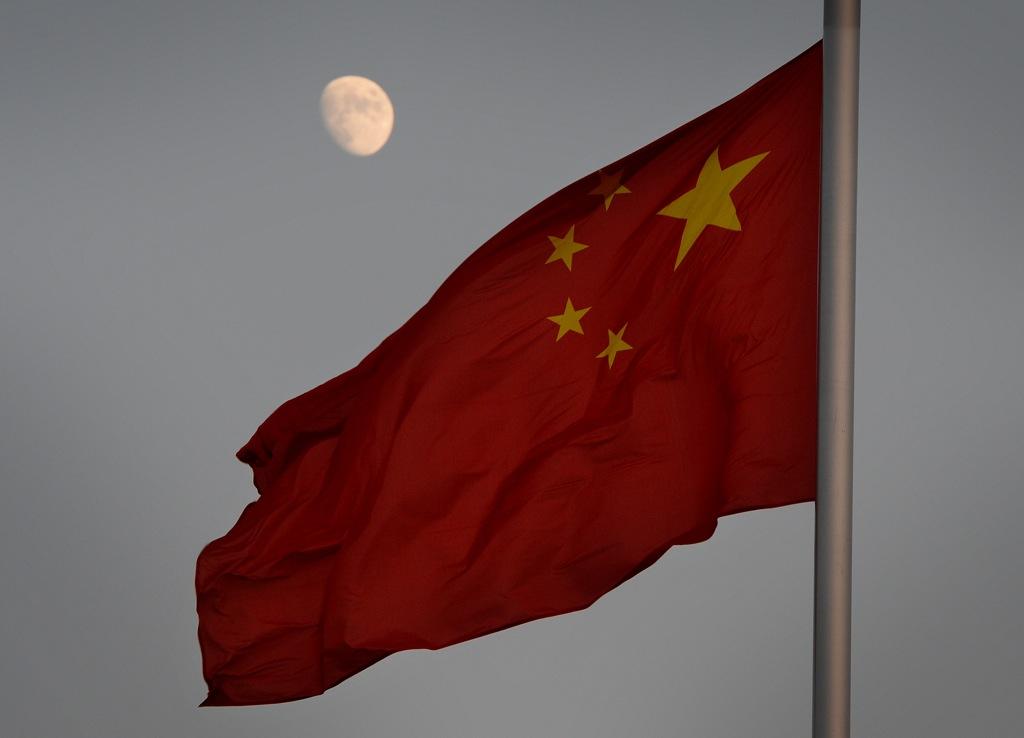One giant leap for China, many great jokes for the internet
Red moon: China’s lunar landing is a first, but social media users have tempered the patriotic celebrations with a dose of wry humor.
HONG KONG — In 1969, millions of Americans gathered around their television sets to watch Neil Armstrong and Buzz Aldrin become the first men in history to walk on the moon. It was a moment of tremendous national pride and inspiration.
In China, the emotions are similar following the country’s remarkable moon landing on December 14. The only difference? China’s jokey, cynical social media has introduced a subversive strain into the patriotic fervor.
Still, the general mood in China is bright, and with good reason. China is only the third country successfully to execute a soft landing — in which neither the spacecraft nor its contents are destroyed — on the moon. The last time anyone did so (the Soviet Union, incidentally) was in 1976, when China had just emerged from the wrenching Cultural Revolution and the nation’s GDP was smaller than Canada’s.
Since the weekend landing, the topic became one of the most popular searches on Sina Weibo, China’s equivalent of Twitter. Even on Monday afternoon, “moon rover” ranked top among hot searches, with over 48,000 queries.
Already, the Jade Rabbit rover — named after the pet of mythical moon goddess Chang’e, who gives her name to the spacecraft that carried it there — has inspired fan accounts on Sina Weibo.
One account posts cute messages and jokes in the “voice” of the Jade Rabbit, often accompanied by a pink, animated rabbit emoticon. (One recent post, for instance, complained about commenters who said that the Jade Rabbit, with its solar panel flaps extended, looked a bit fat.) It has nearly 70,000 followers.
On Sunday, many netizens expressed patriotic rapture upon seeing the first photos of the Chinese five-star flag on the lunar surface. “The whole nation, the whole people are cheering!” went one typical post.
More from GlobalPost: Ikea toy with lewd name becomes symbol of outrage in Hong Kong
Yet others took the opportunity to make veiled criticisms of China by comparing its landing to America’s. One user shared photos comparing the moon surface as pictured during the United States’ Apollo 11 landing in 1969, and at the Chang’e-3 spacecraft’s arrival on Saturday.
“The upper picture shows that during the Apollo landing, the moon’s surface was in good order, the roads are good quality, and the tire tracks are clear and distinct,” one user wrote.
“The lower picture shows that the moon around the Jade Rabbit is messy and chaotic, with rubble everywhere, and the road is covered with million-year-old dust that hasn’t been tidied up. No matter what, the environment and infrastructure of a place expose the true character of a people. That completely explains why the foreign moon is better than the Chinese one!”
The post attracted over 500 comments, many of them making slyly political variations on the comparison. “You only need to implement democratic reform to completely transform the change the messy face of the moon,” wrote one.
“It certainly must be because of systemic problems,” ran another.
One commentator going by the name River Crab responded to the post with a barb aimed at the United States’ National Intelligence Agency.
“Everyone looks at the American imperialist’s moon rover,” he wrote. “It has vacuum tires, four-wheel drive, pneumatic suspension, and an electronic navigation system… Now look at its giant antenna… which it can use to listen to every country’s communications and broadcasts.”
Others joked that the real reason the American photos looked “tidier” was because they were staged.
“Snowden broke the news confirming the US moon landing was a fraud,” wrote one user, in a satirical nod to the NSA whistleblower.
Official media reports stressed the lunar program’s longterm benefits to ordinary Chinese, and trumpeted Jade Rabbit as a symbol of China’s rise.
People's Daily English boasted that the probe “has a lot of advanced technology that can be converted to civilian use.” It cited the remote control technology’s impact on car manufacturing, concluding that “space exploration is about everyone!”
The state-run China News Service’s announcement of the landing said that China “finally has the right to share the resources on the moon with developed countries.”
Discovering mineral resources beneath the moon’s surface is one of the motives behind the mission, according to Chinese media. Jade Rabbit is carrying equipment capable of scanning 300 feet below the surface.
The story you just read is accessible and free to all because thousands of listeners and readers contribute to our nonprofit newsroom. We go deep to bring you the human-centered international reporting that you know you can trust. To do this work and to do it well, we rely on the support of our listeners. If you appreciated our coverage this year, if there was a story that made you pause or a song that moved you, would you consider making a gift to sustain our work through 2024 and beyond?
